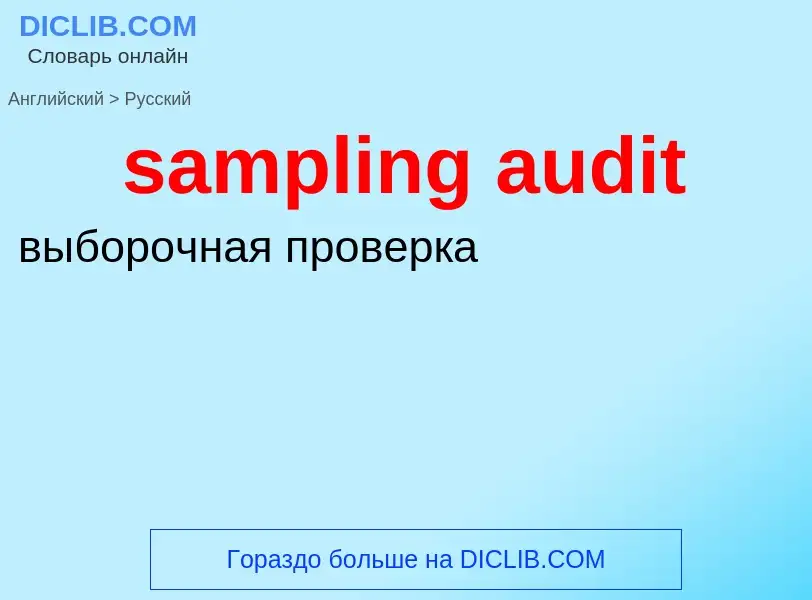Traduction et analyse de mots par intelligence artificielle ChatGPT
Sur cette page, vous pouvez obtenir une analyse détaillée d'un mot ou d'une phrase, réalisée à l'aide de la meilleure technologie d'intelligence artificielle à ce jour:
- comment le mot est utilisé
- fréquence d'utilisation
- il est utilisé plus souvent dans le discours oral ou écrit
- options de traduction de mots
- exemples d'utilisation (plusieurs phrases avec traduction)
- étymologie
sampling audit - traduction vers russe
общая лексика
аудиторское след
след контроля (аудита) контрольная запись
элемент системы управления безопасностью. Журнал, в котором регистрируются события, имеющие отношение к безопасности компьютерной системы. Показывает, кто имел доступ к системе и какие операции в заданный период времени выполнял. Содержит, записи о транзакциях, выполняемых в системе. Позволяет установить хронологию событий при анализе инцидента
бухгалтерский учет
(пошаговая запись хозяйственных операций от момента их совершения до получения финансового результата; данная практика позволяет впоследствии определить достоверность бухгалтерских данных)
аудит
контрольный журнал (хронологически упорядоченная совокупность записей о характере и результатах деятельности организации, достаточная для проведения аудиторской проверки; содержит первичные документы и список хозяйственных операций со ссылками на первичные документы)
синоним
Смотрите также
Définition
Wikipédia
Sampling risk is one of the many types of risks an auditor may face when performing the necessary procedure of audit sampling. Audit sampling exists because of the impractical and costly effects of examining all or 100% of a client's records or books. As a result, a "sample" of a client's accounts are examined. Due to the negative effects produced by sampling risk, an auditor may have to perform additional procedures which in turn can impact the overall efficiency of the audit.
Sampling risk represents the possibility that an auditor's conclusion based on a sample is different from that reached if the entire population were subject to audit procedure. The auditor may conclude that material misstatements exist, when in fact they do not; or material misstatements do not exist but in fact they do exist. Auditors can lower the sampling risk by increasing the sampling size.
Although there are many types of risks associated with the audit process, each type primarily has an effect on the overall audit engagement. The effects produced by sampling risk generally can increase audit risk, the risk that an entity's financial statements will contain a material misstatement, though given an unqualified ('clean') audit report. Sampling risk can also increase detection risk which suggests the possibility that an auditor will not find material misstatements relating to the financial statements through substantive tests and analysis.

